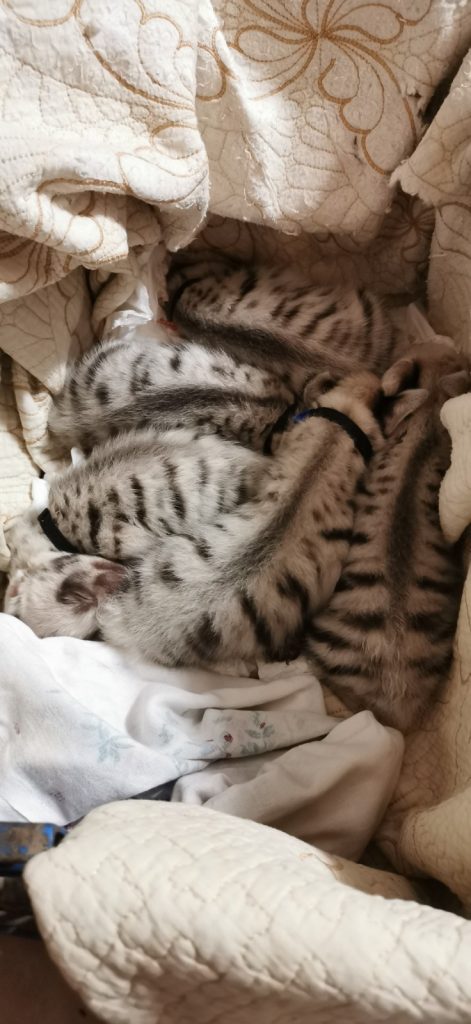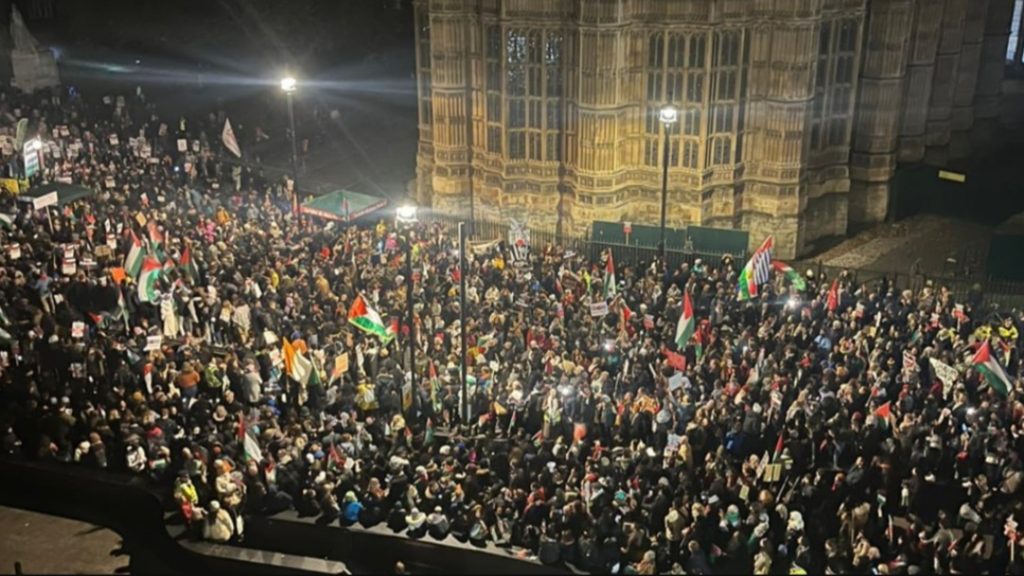I arrived at the Palestine Museum of Natural History / Institute for Biodiversity and Sustainability, housed in the buildings and grounds of an old convent, on Sunday 1st October, after a slightly more complicated and wearing journey than expected, due to a broken-down plane at Luton Airport. After a night at the excellent Rivoli Hotel, near the Damascus Gate in Jerusalem, I took the bus to Bethlehem and arrived at the Centre to a warm welcome, in time to be shown round, unpack and be introduced to other volunteers before lunch.
The first few days were very full and just fun. Everyone works hard but it’s a great atmosphere. By a lucky coincidence, the University was celebrating its 50th anniversary, with a week-long Conference, and Professor Mazin Qumsiyeh, co-director of the Museum and Institute, invited us to several events, however, my first job on Sunday, after we cleared away lunch, was helping feed some baby hyenas. The orphaned cubs had been brought to the Centre’s Animal Rehabilitation Unit by the Palestinian Government’s Environment Quality Authority.

They are very sweet, nibbling toes and trying to nuzzle or nip as they vye with their siblings for a bottle feed, and it’s difficult to resist treating them as pets – which would obviously frustrate attempts to return them to the wild once they’re old enough and would doubtless be very dangerous as they get bigger.
The work here is varied, from simple gardening tasks to helping researchers with an educational programme for children about reptiles or constituting a reference collection for the Herbarium. On Thursday we went to a festival in Beit Sahour, where we heard some excellent music before repairing to the Citadel, the local cultural centre, to watch a film. It was a pleasant surprise to find that the film was in French (with English subtitles), “Bleu”, starring Juliette Binoche, part of a famous trilogy of which I was shamefully ignorant, by Polish director, Krzysztof Kieślowski. It was a great evening. As we waited on the street to flag a taxi home, two very helpful young Palestinians came over, warning us about getting fleeced by drivers taking advantage of foreigners. They called us a taxi themselves, which charged the correct price.
On Friday, we had a small film showing of our own, inviting several of the Palestinians we’d met at the Citadel. One of the volunteers, an Italian visual artist, had made a film about the cycle of workers’ poverty, their organisation leading to their enrichment, then immigrants becoming the new poor, in his home region in Southern Italy. Then a film made by a local person, about the frustrations of travel restrictions for young Palestinians and how he had overcome them to fulfill his dream of travel, only to find, on returning home, that nothing had changed.
We didn’t realise then how appropriate this theme would be, in the light of subsequent events.
The next day was Saturday the 7th. Everything changed.
The Centre’s main gate is locked at 4 o’clock every evening and the University provides a team of security guards. When I went to the gate early on Saturday morning, the guards were laughing happily over their phones. Used to English men, I assumed they were sharing dirty jokes, but when I was close enough to ask, they explained that news was just breaking, that Hamas had organized a series of daring raids, taking down the wall that imprisoned all, breaking the 15- year siege of Gaza, they had apparently secured Gaza and an area outside it and were advancing towards Hebron, in the West Bank.
The guards’ mood was one of elation. “About time too” seemed to be the consensus. We heard several explosions, gunfire and sirens. It was difficult to understand just what was going on, but the Palestinians seemed to think “the Resistance” was successful and were clearly proud of their countrymen. At lunchtime, we saw tracers in the sky, which we were told were from Hamas rockets. The atmosphere was febrile. We were told that the City of Jerusalem was closed, and probably the Airport too. Nevertheless, that afternoon, in the hospitable tradition of Palestinians, we were invited to a family wedding, an energetic Greek Orthodox ceremony, with a lavish party in the evening.
Then the messages started. Anxious relatives and friends asking if we were safe, were we planning to leave, would we be able to get home. This had a major effect on our little group. We seemed to have become very close in a short space of time, and now we were on the point of break-up. The first to leave was a young Danish man, a volunteer with ActionAid, which decided on Sunday morning to evacuate all its people. He didn’t have time to say goodbye, by midday, he was on his way to Jordan. Our two Italian volunteers, a 24 year-old woman, whom I’d been shadowing, and a 40-year-old man, our film-maker, were feeling increasingly harassed. They’d already been here for a while and had planned to leave fairly soon anyway and were worried about getting trapped. We heard about road closures, checkpoint closures (Israel operates a series of internal border posts for Palestinians trying to get around their country) and flight cancellations. It was a strange and disturbing day. Quiet, but a lot of tension in the air.
Local volunteers came and went as usual. Various lost souls drifted through the Centre, seeking help. Two Mandarin speakers rescued several young Taiwanese and Chinese people who had got stuck and drove them to the only open checkpoint, from where they could get a taxi to Tel Aviv. Cars were not allowed through the checkpoint.
Opinions were divided on the hostilities. Some were still enthusiastic about “the Resistance”, others were concerned about the inevitable Israeli retribution, given the immense imbalance of forces in favour of Israel. In the afternoon and evening, we heard several more explosions. In the small hours of Monday, I was woken by the sound of heavy aircraft and Monday morning saw more aerial activity, fighters, bombers and maybe transport planes, together with more explosions and the sound of gunfire. Hamas seemed still to be having some successes but they have no air power and it seems that America and other world governments have, shamefully, weighed in on the side of the strongest. No more talk of “balance” – as if there could ever have been balance between the might of technologically advanced and well-armed Israel and the resilient but oppressed people of Occupied Palestine – of peace talks, or of a two-state solution.
During the night, I heard shouting coming from the direction of the refugee camps in the area above us, and in the morning, I heard that the refugee camps had been raided and a couple of inhabitants had been killed or kidnapped – “arrested”, in Israeli language; but this is Area ‘A’, as defined by the 1993 Oslo Accords, supposedly under the full control, including in matters of security, of the Palestinian Authority, so arrest by Israelis, although they frequently indulge in such activity, would surely be illegal. Our Italian friends finally left early on Tuesday morning. They had been persuaded to give up their attempt to fly from Tel Aviv to Italy and instead travelled via Jordan. Our hosts took them to the checkpoint and arranged for a taxi to drive them to the northern border with Jordan, thence another taxi from the Jordanian side to Amman. A circuitous route which took them several hours, mainly because of hold-ups at the border, but they finally got their flight on Tuesday night.
With only two volunteers left here, it was very quiet. There were fewer planes flying over too, a few in the morning and just one or two in the early afternoon, which seemed to be flying west-east, instead of the usual east-west, Gaza being south-west of Bethlehem. Wednesday was quiet too, though there seems to have been another raid on the camps. The mood here has changed, just in the space of a few days, to one of sad reflection. People who were supposed to be arriving here soon, both friends and volunteers, are having to cancel. Palestinian staff come in as normal but there’s the same amount of work for fewer people. On Thursday evening, I returned to Beit Sahour, on the off-chance that the second film in the trilogy, “Blanc” would be showing. There were lights in the building and the door was open but the manager told me a strike had been called in sympathy with Gaza and everything was closed. But he let me stay chatting for a good while, about the rights and wrongs of the situation, the madness of governments, and the parallels with Ireland, which I feel very strongly. Indeed, I often find myself, as I work around the site, singing Irish rebel songs appropriate to the situation, which would no doubt horrify my friends in Dublin these days! I’m reminded of the words of the Proclamation of the Irish Republic in 1916:
“IRISHMEN AND IRISHWOMEN: In the name of God and of the dead generations from which she receives her old tradition of nationhood, Ireland, through us, summons her children to her flag and strikes for her freedom…. We declare the right of the people of Ireland to the ownership of Ireland and to the unfettered control of Irish destinies….” https://en.wikipedia.org/wiki/Irish_Declaration_of_Independence
The next afternoon, there was a lot of firing coming from Checkpoint 300, just over a mile away up the hill above us. One of the Palestinian volunteers, who lives near there, told me the Israeli Army were firing gas bombs from their control tower at demonstrators in neighbouring streets. The firing went on for a good while. Later, in the early evening, there were some explosions from the same direction, and another one during the night. On Saturday, we saw a couple of fighter jets flying overhead. There’s been a lot of cloud cover recently and we usually hear but don’t see them. Local people called a meeting here in the evening, trying to work out how they can help. On Sunday morning, about 100 people demonstrated in Beit Sahour, while traffic rumbled on as normal through the streets. Sunday is a working day for many people, depending on their religion. It takes courage to demonstrate in Occupied Palestine; but the news of big demonstrations in other countries gave them heart.

This is part one of a journal from Johnnie Byrne who happened to be there at this time. We would like to thank her for giving us permission to publish.
One Comment on “What A Difference A Week Makes”